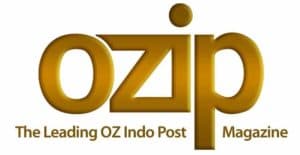A job or a career is important for most of us to pursue at some point in our lives. Sadly, with the uncertainty of the world’s economy and retrenchment of many workers, we must admit the struggles and competition many face today in securing a job.
For me, my passion was to fly or work onboard an airplane. With much regret, I hereby sit at my office desk writing this to you, wondering how I will feel if I had pursued my dream. Congratulations! You’ve finished your university or college and you’re all ready to take a step of courage into the working world. Competition is strong and achieving our dream job can be a rather tough journey as I presently still learn each day to survive in our challenging environment.
Job Application
- Analyse the essential competencies / skills that are specifically required, acquire themif necessary
- Address the selection criteria in your resume and cover letter, using distinct but succinct examples on your life and/or work experiences
- Expand your professional network, contacts and circle of friends; interact with a diverse range of people working in and out of your field – recommendations from others often play a significant role in securing an interview and potentially a job
- Request for those with working / recruitment experience to review your job application; if you’ve just finished university, resume rescue workshops are essential
- Undertake paid, volunteer or work experience within or outside your field of work; nothing is a waste of time as we develop and learn from them everyday
Individual Interviews
- Be organised for it! Some of the essential areas to prepare would include a general introduction of yourself and examples of your experiences that can convince the recruiter that you fulfil the selection criteria. If you are using a similar example to one on your resume/ cover letter, ensure that they are consistent with what you have submitted! Areas that are often touched on would be teamwork, commitment and problem-solving
- Honesty is the best policy! If you are unsure about something the interviewers ask you or do not have any answers, seek clarification or simply admit the truth. Employers rather hire someone who desires to learn from inexperience and improve than one who is over- confident and may seemingly know everything
- Ask the interviewers questions about the position; show your desire and passion to develop and succeed in the job
Team Activity
- If your interview involves working on a task with others, we often look for someone who is alert, have close attention to detail and respects the opinions of others. Voicing your opinions and suggestions to the team will need to be done wisely. The loudest and brashest often finds their way out of the door
- If a whiteboard and writing material is available, drafting out a concept map would bebeneficial for the team to understand and follow the direction of the task. Perhaps you can offer that suggestion and volunteer for it, it shows initiative and strong leadership potential
Written / Competency Assessment
- Ensure that you understand the question(s) fully and do not be afraid to clarify if need be
- Take a moment to draft up a plan for your answers, attempt your best to link and structure your responses carefully. Timing is short, be wise on what you reference on and write
- Some interviews incorporate a competency assessment such as numerical and verbal reasoning with strict timelines. You can often practice them prior to the interview online
Remember, it is important to have a positive mindset. You may not be successful on the first or on many instances but be persistent and focused. Regardless of whether you’re successful or not, request for feedback from the employers about improving yourself and learn much from the experience. What you did not achieve today makes you a better person for the future! All the best with your dreams and aspirations!
Text: Titus Tan




















